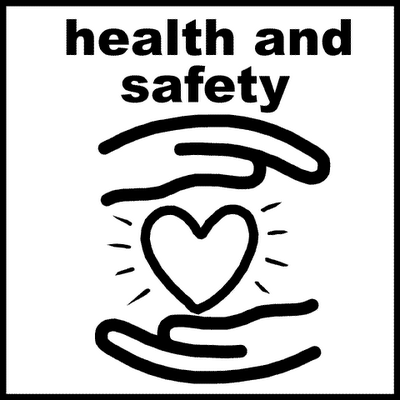 It is very common for a college student to have class right after each other, leaving very little time to have a real meal. Therefore, a lot of college students depend on snack that can easily be carried around and eaten on the way to their next class. The problem is that most student tend to lean toward candy bars and chips as their source of snack. This is not only an unhealthy option but it can also be very expensive. We have put together a list of 10 affordable snacks that are healthy and easy to carry around in your backpack.Nutritious and Inexpensive College Snack #1: Power/Granola BarsThis is an excellent snack because it is very easy to carry around. They are also very health because they are filled with many vitamins and nutrients. These bars can also keep college students full until they have time for a real meal.
It is very common for a college student to have class right after each other, leaving very little time to have a real meal. Therefore, a lot of college students depend on snack that can easily be carried around and eaten on the way to their next class. The problem is that most student tend to lean toward candy bars and chips as their source of snack. This is not only an unhealthy option but it can also be very expensive. We have put together a list of 10 affordable snacks that are healthy and easy to carry around in your backpack.Nutritious and Inexpensive College Snack #1: Power/Granola BarsThis is an excellent snack because it is very easy to carry around. They are also very health because they are filled with many vitamins and nutrients. These bars can also keep college students full until they have time for a real meal.
Australian Health Care for International Students
It’s bad enough when you come down with a bug and you’re close to home. But as an international student living and learning abroad in Australia, you won’t have access to mom’s chicken soup or the doctor you’ve visited for years. Here’s how to prepare for a healthy stay in Australia, and what to expect if you get sick while you’re there.
An Ounce of Prevention
They say an ounce of prevention is worth a pound of cure, and this old adage applies whether you’re away at college in your home country or studying abroad in Australia.
Although no specific immunisations are required for entry into Australia, your host university may recommend as a condition of your admission that all routine childhood immunisations are up-to-date. Review your medical records and make sure you’ve been vaccinated against measles, mumps and rubella, and that you have received a tetanus shot within the last 10 years.
You may also check with your doctor for other vaccination recommendations, which may include a flu shot. Flu season in Australia runs from May to October.
Ask your doctor to perform a routine physical exam to ensure you are departing your home country in good health, and request that he or she write a three-month prescription for any medications you take on a daily basis. Only three months’ worth of prescription medications will be allowed through customs when you arrive in Australia, but this will give you plenty of time to seek out a local physician who can prescribe medication during the remainder of your stay.
To avoid problems with customs, you should carry with you a copy of your written prescription and a doctor note that explains your condition and the medications he or she has prescribed to treat it.
If You Get Sick in Australia
Australia’s Department of Immigration and Citizenship requires that all international students acquire Overseas Student Health Coverage, which serves as a medical insurance policy for the duration of a student’s stay in Australia. Check with your host university’s Department of International Studies for insurance provider recommendations. Some universities have arrangements in place with providers that have already been selected.
Your OSHC policy will help pay for doctor visits or hospital stays, and will cover some of the cost of prescriptions. In general, OSHC policies do not include dental or vision coverage. You can buy additional coverage for dental and vision policies, or you may elect to have comprehensive dental and vision exams at home, before you depart for Australia, to address any potential problems. If you wear glasses, bringing a second pair to Australia might save you money in the long run should you break or lose your original pair.
If you get sick while you are in Australia, you’ll have the choice to see either a private practise doctor or a medical centre doctor. Both are held to the same high Australian standards of modern health care, but private practise doctors see patients by appointment only while medical centres accept walk-ins on a first-come, first-served basis. Both types of doctors are listed in Australia’s yellow pages, so when you first arrive in Australia you may want to identify the nearest doctor of your choice before it becomes a necessity to do so.
In a Medical Emergency
Australia’s nation-wide emergency phone number is 000. In a medical emergency, dial three zeroes to be connected to an operator who will take your request for an ambulance and dispatch one to you. You may also arrange private transportation to a hospital emergency room, but use caution in visiting an ER. Australian emergency rooms are for life-threatening situations only.
International students who access the Australian health care system, whether it's for emergency or routine medical care, may do so with confidence. Australian doctors undergo years of rigorous, comprehensive medical training on par with other industrialized nations’ medical providers, and they use the most modern, advanced technologies for diagnosis and treatment.
You’ll have to make it through your illness without mom’s chicken soup; but trust that if you visit an Australian doctor, you will feel better soon.

 Students and their parents must take action when it comes to the health and safety when studying aboard. Anything can happen in regards to a student’s health and safety when studying overseas. Before a student decides to take off for their destination abroad they should make sure they have received any required or recommended immunizations, shots, or medicines, for their travels abroad.
Students and their parents must take action when it comes to the health and safety when studying aboard. Anything can happen in regards to a student’s health and safety when studying overseas. Before a student decides to take off for their destination abroad they should make sure they have received any required or recommended immunizations, shots, or medicines, for their travels abroad.
 Students that choose to study in Australia can be happy to know that Australia provides and hosts a safe academic, living, and work environment.
Important: Health Insurance
Australia has excellent health and medical facilities set in place for easy access for international students.
Students that choose to study in Australia can be happy to know that Australia provides and hosts a safe academic, living, and work environment.
Important: Health Insurance
Australia has excellent health and medical facilities set in place for easy access for international students.

